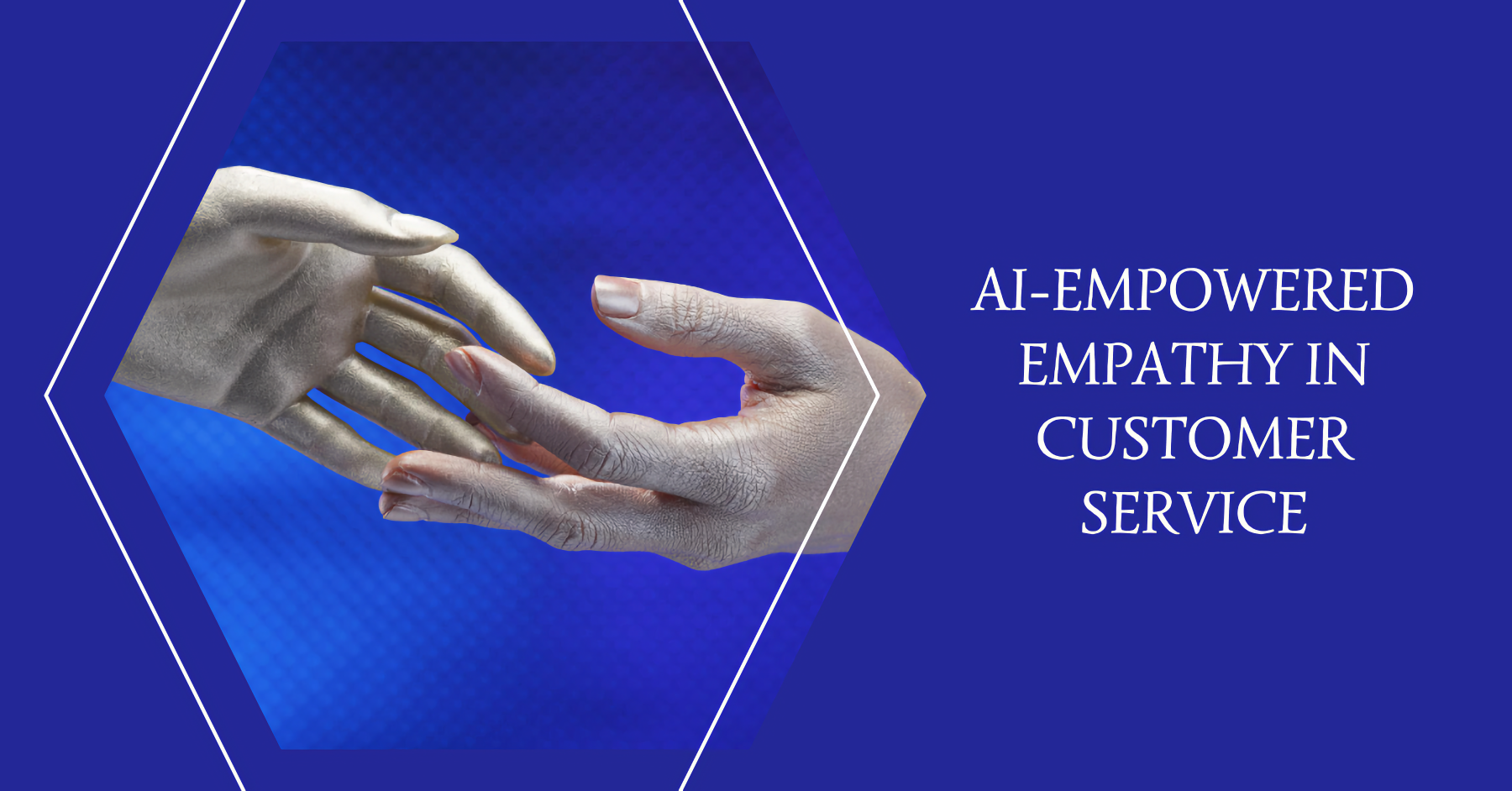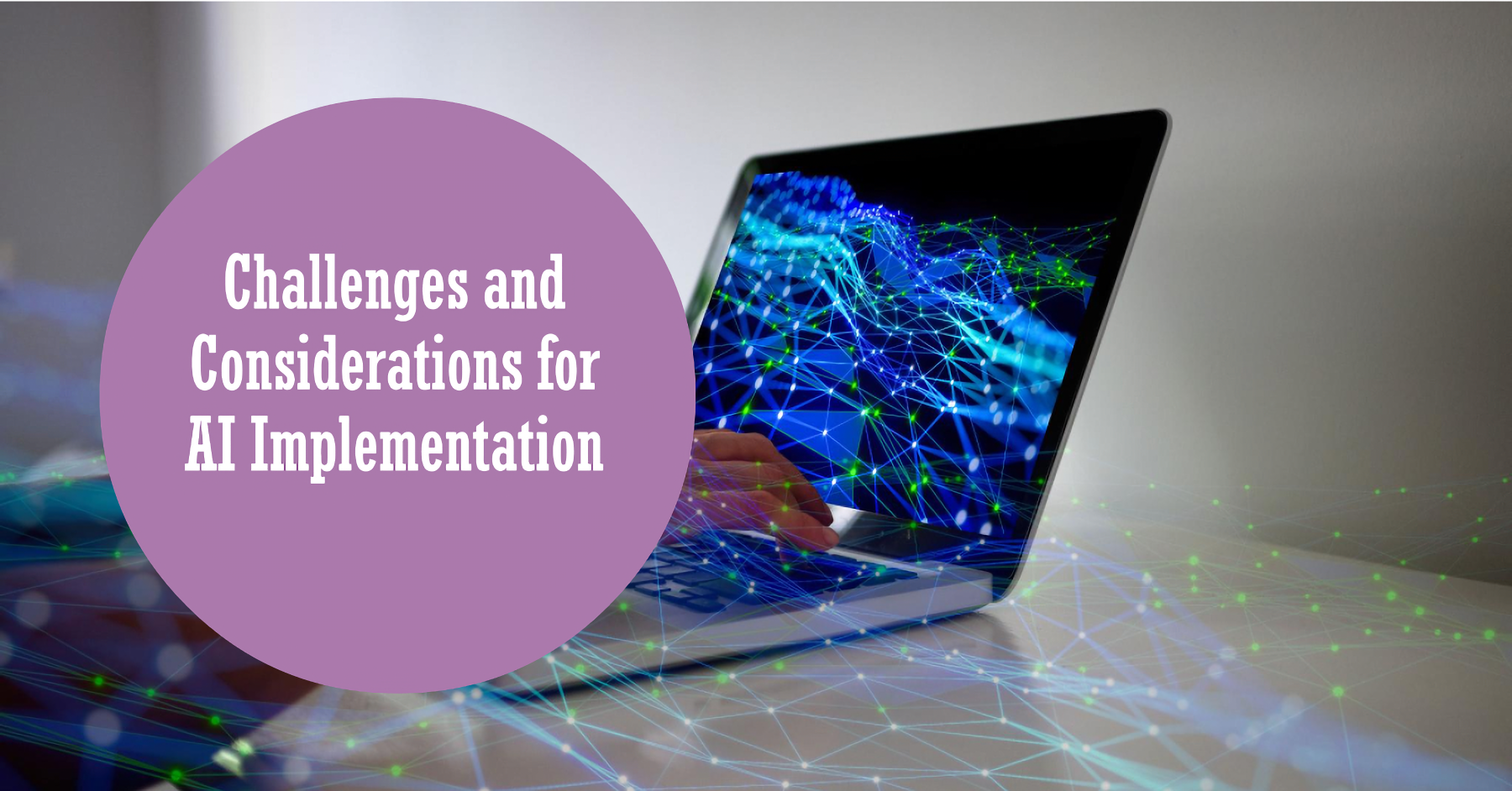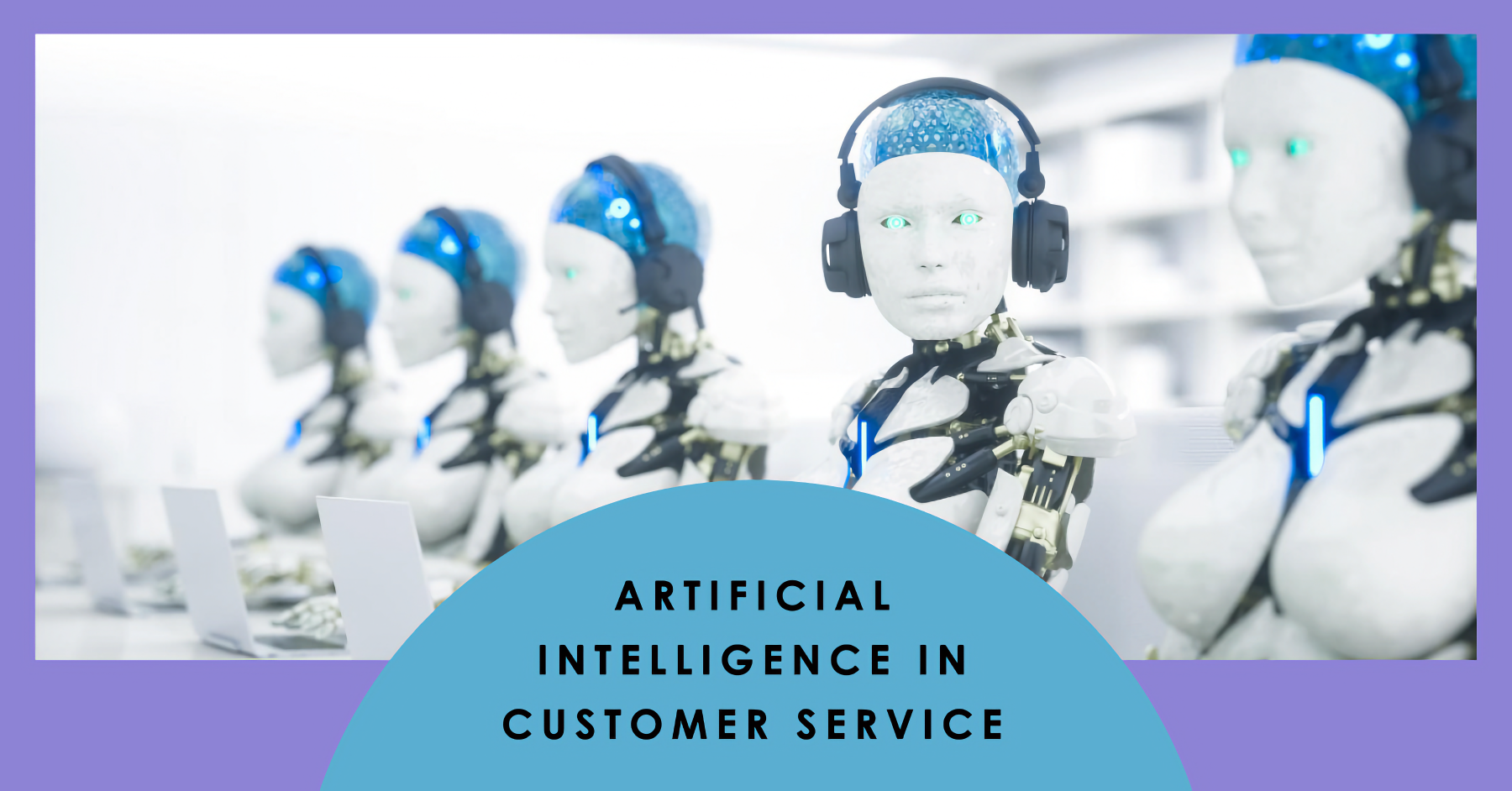Customer service is critical for business success, with quality support driving higher customer satisfaction, loyalty, and revenue growth. However, delivering excellent service across rapidly growing customer bases can overwhelm human-reliant support teams. This is where artificial intelligence (AI) comes in â rapidly transforming customer interactions with greater efficiency, personalization, and empathy.
AI-powered solutions are enabling businesses to handle higher query volumes, while providing customers with faster, more tailored and emotionally-intelligent experiences. As AI adoption accelerates, the customer service landscape is on the cusp of revolutionary change.
How AI Enhances Customer Service Efficiency
AI introduces game-changing efficiencies into customer service through:
AI Chatbots Auto-Handle Repetitive Queries
Chatbots leverage natural language processing to understand requests and provide instant responses to common inquiries, such as account balances, order statuses and returns policies. This frees up human agents for more complex interactions.
Global consumer goods giant Unilever reported that when chatbots handled repetitive queries, it increased customer service capacity by over 70%.
Query Type | Chatbot Deflection Rate |
|---|---|
Order Status | 87% |
Returns Policies | 92% |
Loyalty Programs | 94% |
With chatbots providing consistent 24/7 support for high-frequency requests, customer frustrations reduce and agents focus on higher-touch assistance.
Self-Service Portals Empower Customers
AI-powered self-service frees customers from waiting on hold. Portals provide on-demand access to account details, user guides, troubleshooting advice and FAQs. Natural language search helps users find relevant support content faster.
For example, IBM Watson Assistant answers over 8 million customer queries every month on the General Motors owner support portal â with over 85% accuracy and no human intervention required.
Enabling self-service reduces inbound call volumes. Vodafone saw a 40% drop in basic customer support contacts after launching its TOBi AI assistant portal.
Proactive Issue Identification
Traditionally, businesses rely on customers contacting them to report issues. However, AI performs real-time speech and sentiment analysis across customer interactions to detect problems proactively.
Spanish bank BBVA uses AI to analyze millions of customer conversations and pinpoint emerging trends around technical glitches, confusion over services or dissatisfaction with fees. They can address problems before customer frustration boils over.

AI for Personalized Customer Experiences
AI contextualizes each customer, shaping supportive interactions through:
Tailored Recommendations
AI recommendation engines leverage data including past purchases, browsing history and demographics to provide hyper-personalized product and content suggestions. Over 75% of Netflix viewer activity is reportedly driven by their AI recommendation engine.
Beauty retailer Sephora saw a 60% sales uplift from trialing an AI-powered recommendation tool in its app. The technology analyzed individual preferences to suggest new items customers were likely to love.
Contextual Understanding
Human agents sometimes struggle to recall customer details from previous interactions. However, AI automatically surfaces relevant data from CRM systems and past communications to help agents assist customers based on their unique context.
For example, when a repeat customer contacts a bank, an AI-powered dashboard can display details of previous discussions, overall account status, recent transactions plus any loyalty program status. Equipped with this 360-degree view, the agent can deliver a tailored service.
Conversational Personalization
AI chatbots can understand nuances in customer language and adapt responses using Natural Language Generation (NLG). This helps conversations feel more natural and relevant to each customer.
If a customer asks about pricing using industry jargon, the chatbot can mirror that terminology when explaining available plans. Or if a customer expresses uncertainty, the bot can rephrase explanations more simply.

AI-Empowered Empathy in Customer Service
Emotion AI helps brands demonstrate greater empathy by:
Detecting Emotional Cues
Humans express frustration, confusion, urgency or excitement through verbal and tonal signals. AI can continually analyze conversations to identify these emotional cues.
For example, call analysis by Cogito revealed that expressions of politeness, disappointment and hesitation correlate strongly to customer dissatisfaction â allowing agents to address problems before a customer directly complains.
Fostering Human-Like Connections
AI chatbots engage customers conversationally using humor, empathy and relatable personalities. For example, the friendly, joke-telling Elsa bot developed by Artificial Solutions makes customers smile while helping across 45 languages.
Instrumental in the UK saw a 250% increase in customers rating conversations with Elsa as âgreatâ compared to human agents. Her blend of empathy, warmth and wit delights customers.
Proactively Supporting Customers
Businesses typically wait for customers to ask for help. However AI can take the initiative to assist people experiencing difficulties.
For example, AI can detect if an online banking customer is struggling to make bill payments. It might open a chat window and ask if that customer needs advice on budget management tools, credit options or payment plan flexibility. This demonstrates empathy along with helpfulness.
Real-World AI Customer Service Applications
Letâs explore real-world examples of AI elevating the customer experience:
[24]7.ai Virtual Agent Sees Surging Usage
The homeware company Wayfair introduced a [24]7.ai virtual agent onto their website to manage common queries. Within just 30 days, over 50% of site visitors engaged with the bot.
Wayfair saw exceptionally high usage compared to the average bot adoption rate of just 11%. The intuitive natural language capabilities of [24]7.ai meant customers easily engaged with their new automated assistant.
UNIQLO Chatbot Seamlessly Blends Humans + AI
Retail chain UNIQLO partnered with Oracle to build an intelligent hybrid chatbot. The system assesses each query to determine if a bot or human should respond. Customers feel they are having a fluid conversation with one helpful agent, unaware when handed from AI to human.
UNIQLO saw customer satisfaction rise by 97% compared to phone-based support. The enhanced experience increased brand loyalty, with 91% of customers saying they will shop at UNIQLO more often due to the excellent service.
Humana Deploys Empathetic Chatbot for Members
Healthcare provider Humana analyzed over 15 million member calls and identified top reasons people contacted them. They deployed an AI-powered IBM Watson Assistant virtual agent to support common inquiries around claims, appointments and benefits.
Importantly, Humana focused on making the bot empathetic. Watson Assistant uses natural language understanding and sentiment analysis so the bot can detect member frustration and provide reassurance.
Since launch, the virtual assistant has fielded over 5 million member questions with 93% accuracy. The 24/7 automated support enhances accessibility and satisfaction.

Challenges and Considerations for AI Implementation
While promising, AI-driven customer service involves notable challenges including:
Protecting Data Privacy
Consumers expect brands safeguard their data privacy when implementing AI tools. Businesses must ensure transparency around what information will be collected, analyzed by AI systems, and how insights will be actioned.
Mitigating AI Bias
If insufficient customer diversity is represented in the data used to train AI models, they may develop biases against marginalized groups. Continual model validation, fairness audits and expert oversight is critical to build truly inclusive AI.
Managing Human-AI Collaboration
Despite AI's strengths, human judgment still triumphs in complex situations with emotional nuance. Businesses must foster positive human-AI collaboration by providing agents training to help AI systems excel at routine tasks while handling exceptions themselves.
When assessing AI solutions, key considerations include:
User-Centered Design: Evaluate tool intuitiveness, ease-of-use and accessibility.
Hybrid Compatibility: Ensure the AI seamlessly blends bot automation and human assistance.
Security: Rigorously validate data protection protocols and risk vulnerability assessments.
Ethics Audits: Review embedded dataset diversity and fairness governance.
Embracing the Future of AI-Powered Customer Service
Customer service is undergoing an AI-powered metamorphosis. Businesses must either embrace this revolution or risk falling behind competitors who are already realizing immense gains in efficiency, sales growth and brand loyalty from AI adoption.
The time is now to explore how AI tools like virtual agents, sentiment trackers and self-service portals can help your business manage inquiry spikes, deepen customer intimacy and demonstrate genuine empathy at scale.
Prioritize building a robust AI strategy centered on enhancing - not replacing - human connections. With smart implementation, your customer service agents can be empowered, not threatened, by AI and collaborate seamlessly with automated systems.
Start your AI journey today. Empower your customers with instant, personalized and emotionally-intelligent support experiences that exceed expectations. Supercharge your agents by allowing AI to smoothly handle high-volume repetitive tasks so they can focus on building relationships.
Then watch customer satisfaction, referral rates and revenue all soar. The AI revolution has arrived, and progressive businesses who embrace it will thrive like never before.


